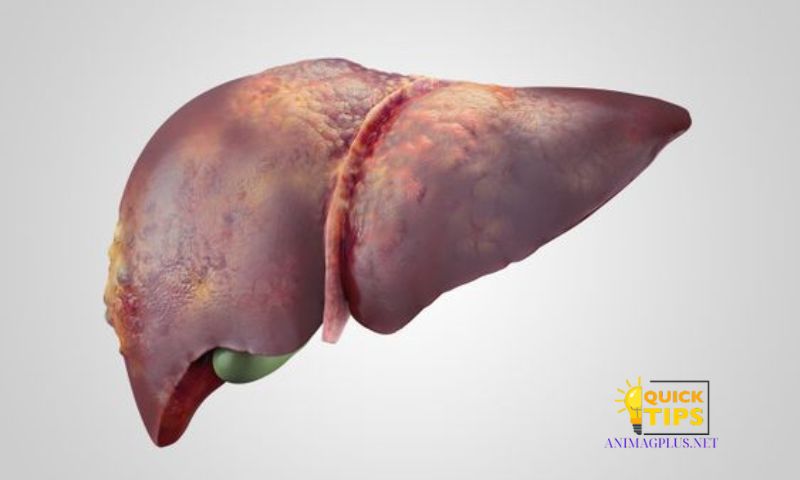The prevalence of fatty liver disease is steadily increasing, raising concerns within medical communities and among the general populace alike. The accumulation of fat within the liver not only impairs its functionality but also poses a risk of severe complications. Despite the rapid advancements in medical technology, traditional folk remedies for fatty liver continue to captivate interest and find application among many individuals. This comprehensive article from Animagplus aims to delve into various folk remedies believed to hold efficacy in addressing the challenges posed by fatty liver.
Understanding Fatty Liver: An Overview

Fatty liver disease manifests as the accumulation of lipids within hepatocytes, leading to a deterioration in liver function. The root causes of this condition often stem from unhealthy lifestyle choices, including imbalanced dietary habits, sedentary routines, excessive alcohol consumption, and underlying cardiovascular disorders.
The ramifications of fatty liver disease extend beyond its immediate effects, potentially paving the way for a myriad of health complications such as hepatitis, liver fibrosis, diabetes, hypertension, and even hepatocellular carcinoma. Hence, it becomes imperative to address this condition promptly to avert the onset of these perilous consequences.
Harnessing the Power of Folk Remedies: Strategies for Combatting Fatty Liver

Dietary Adjustments: Nourishing the Liver Naturally
Embracing a Vegetable and Whole Grain-Rich Diet
Vegetables and whole grains emerge as nutritional powerhouses, furnishing the body with essential fibers and nutrients while curbing the deposition of excessive fats within the liver. Incorporating a variety of leafy greens like kale, squash, carrots, alongside whole grains such as brown rice and oats, into daily meals constitutes a prudent dietary choice.
Curbing Sugar and Fat Consumption
Sugar and unhealthy fats are instrumental in fostering hepatic lipid accumulation. Hence, moderating the intake of sugary treats, processed foods, and fast-food options can effectively mitigate the progression of fatty liver disease.
Galvanizing Physical Activity: Bolstering Liver Health Through Exercise
Establishing a Balanced Exercise Regimen
Regular physical activity forms the cornerstone of fatty liver disease management. Cultivating a balanced exercise routine, encompassing activities like brisk walking, jogging, cycling, and swimming, serves as a potent tool in reducing hepatic fat content and bolstering overall well-being.
Embracing Gentle Exercises
Incorporating gentle exercises such as leisurely walks, jogging sessions, cycling escapades, or even tending to a garden plot can confer substantial benefits on liver health and the body’s physiological systems.
Leveraging Herbal Remedies: Nature’s Arsenal Against Fatty Liver
Harnessing Silymarin from Milk Thistle
Silymarin, a bioactive constituent derived from milk thistle, is revered for its hepatoprotective properties, shielding the liver from the deleterious effects of free radicals and various toxic agents.
Exploring Curcumin from Turmeric
Curcumin, the principal bioactive compound found in turmeric, boasts potent anti-inflammatory and antioxidant attributes, thereby attenuating hepatic inflammation and fortifying its resilience against oxidative stress.
Embracing Omega-3 from Fish Oil
Omega-3 fatty acids, indispensable for liver health, can be obtained through supplementation with fish oil. Augmenting omega-3 levels in the diet can ameliorate liver function and mitigate hepatic fat accumulation.
Stress Alleviation: Cultivating Mental Well-being for Liver Health
Practicing Meditation, Yoga, and Relaxation Techniques
Stress serves as a precipitating factor for various health maladies, including fatty liver disease. Engaging in mindfulness practices such as meditation, yoga, or relaxation exercises fosters emotional equilibrium, alleviates stress, and thereby augments liver function and overall health.
Caveats and Advisory Points

Seek Professional Guidance: Prioritize Informed Decision-Making through Consultation
Before embarking on any treatment modality, it is not only wise but imperative to seek counsel from a qualified healthcare practitioner. Consulting with a medical professional ensures that individuals gain comprehensive insight into the suitability and safety of the chosen approach in light of their unique health status and medical history. Through this collaborative exchange, individuals can glean invaluable guidance and make informed decisions regarding their healthcare journey.
Exercise Caution in Self-Treatment Endeavors: Embrace Prudence and Moderation
While the allure of folk remedies may be compelling, it is essential to exercise caution and adopt a measured approach in self-treatment endeavors. While these traditional remedies may indeed harbor potential benefits, they should be viewed as complementary rather than exclusive substitutes for professional medical advice and intervention. Fatty liver disease is a complex medical condition that warrants diligent oversight and individualized management under the purview of healthcare experts. By practicing moderation and recognizing the limitations of self-treatment, individuals can navigate the realm of alternative therapies with discernment and circumspection, safeguarding their health and well-being in the process.
Persistence and Patience: Embrace Fortitude on the Path to Healing
Addressing fatty liver disease demands unwavering resilience and steadfast commitment. It is imperative to acknowledge that a quick fix or universal remedy does not exist, and the journey toward recovery is often marked by incremental progress and fluctuating timelines. Each individual’s response to treatment varies, necessitating a perspective of patience and perseverance. By cultivating resilience and embracing fortitude, individuals can traverse the ups and downs of their healing journey with equanimity and resolve. Through persistence and patience, they can navigate the complexities of fatty liver disease with grace, resilience, and an unwavering commitment to reclaiming their health and vitality.
Concluding Thoughts
In the crusade against fatty liver disease, folk remedies emerge as invaluable adjuncts to conventional therapeutic approaches. Nevertheless, amalgamating these age-old remedies with evidence-based medical care and lifestyle modifications constitutes the optimal strategy for safeguarding liver health and nurturing holistic well-being.

